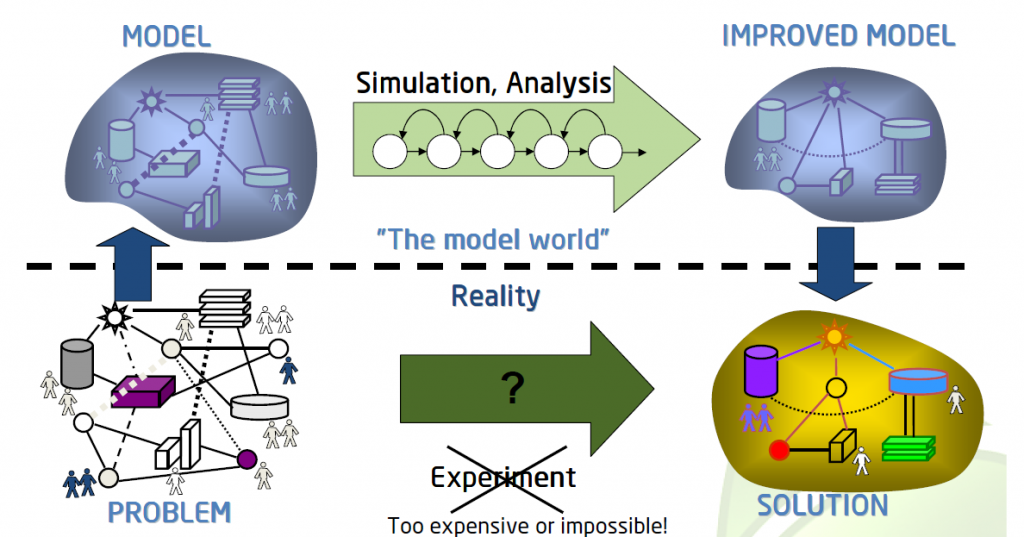Simulation Modeling aid in Decision-Making Under Uncertainty

Simulation modeling is a powerful technique used in decision-making under uncertainty by providing a means to model and analyze complex systems in dynamic and uncertain environments. Here's how simulation modeling aids in decision-making under uncertainty:
Capturing Uncertainty: Simulation models can incorporate various sources of uncertainty, including random variability, parameter uncertainty, and scenario uncertainty. By simulating the behavior of the system over multiple iterations or scenarios, simulation modeling captures the range of possible outcomes and their associated probabilities, allowing decision-makers to understand the uncertainty inherent in the system.
Exploring Alternatives: Simulation models enable decision-makers to explore different alternatives and scenarios in a risk-free environment. By experimenting with different input parameters, policies, and strategies, decision-makers can assess the potential impacts of their decisions under different conditions and make informed choices that mitigate risks and uncertainty.
Quantifying Risk: Simulation models provide quantitative measures of risk and uncertainty, such as probability distributions, confidence intervals, and risk metrics. By analyzing the distribution of outcomes and assessing measures of central tendency and variability, decision-makers can quantify the level of risk associated with different decisions and identify strategies to manage and mitigate risks effectively.
Optimizing Decision Rules: Simulation models can be used to optimize decision rules and strategies under uncertainty. By simulating the performance of different decision rules and evaluating their outcomes, decision-makers can identify optimal decision-making strategies that maximize expected value, minimize costs, or achieve other objectives under uncertain conditions.
Sensitivity Analysis: Simulation models facilitate sensitivity analysis to assess the impact of uncertainty on key performance indicators and decision outcomes. By systematically varying input parameters and analyzing their effects on output metrics, decision-makers can identify the most influential factors driving uncertainty and prioritize efforts to reduce uncertainty or improve decision quality.
Scenario Planning: Simulation models support scenario planning by simulating the behavior of the system under different future scenarios and assumptions. By generating multiple scenarios representing a range of possible futures, decision-makers can assess the robustness of their strategies and develop contingency plans to address potential risks and uncertainties.
Learning and Adaptation: Simulation modeling allows decision-makers to learn from past experiences and adapt their strategies over time. By comparing simulated outcomes with actual outcomes and updating the model based on new information, decision-makers can improve their understanding of the system dynamics, refine their strategies, and make more effective decisions in the face of uncertainty.
Overall, simulation modeling provides decision-makers with a powerful tool for analyzing complex systems, exploring decision alternatives, quantifying risk, and making informed decisions under uncertainty. By integrating uncertainty into decision-making processes, simulation modeling helps organizations improve resilience, adaptability, and decision quality in dynamic and uncertain environments.
Thank you,